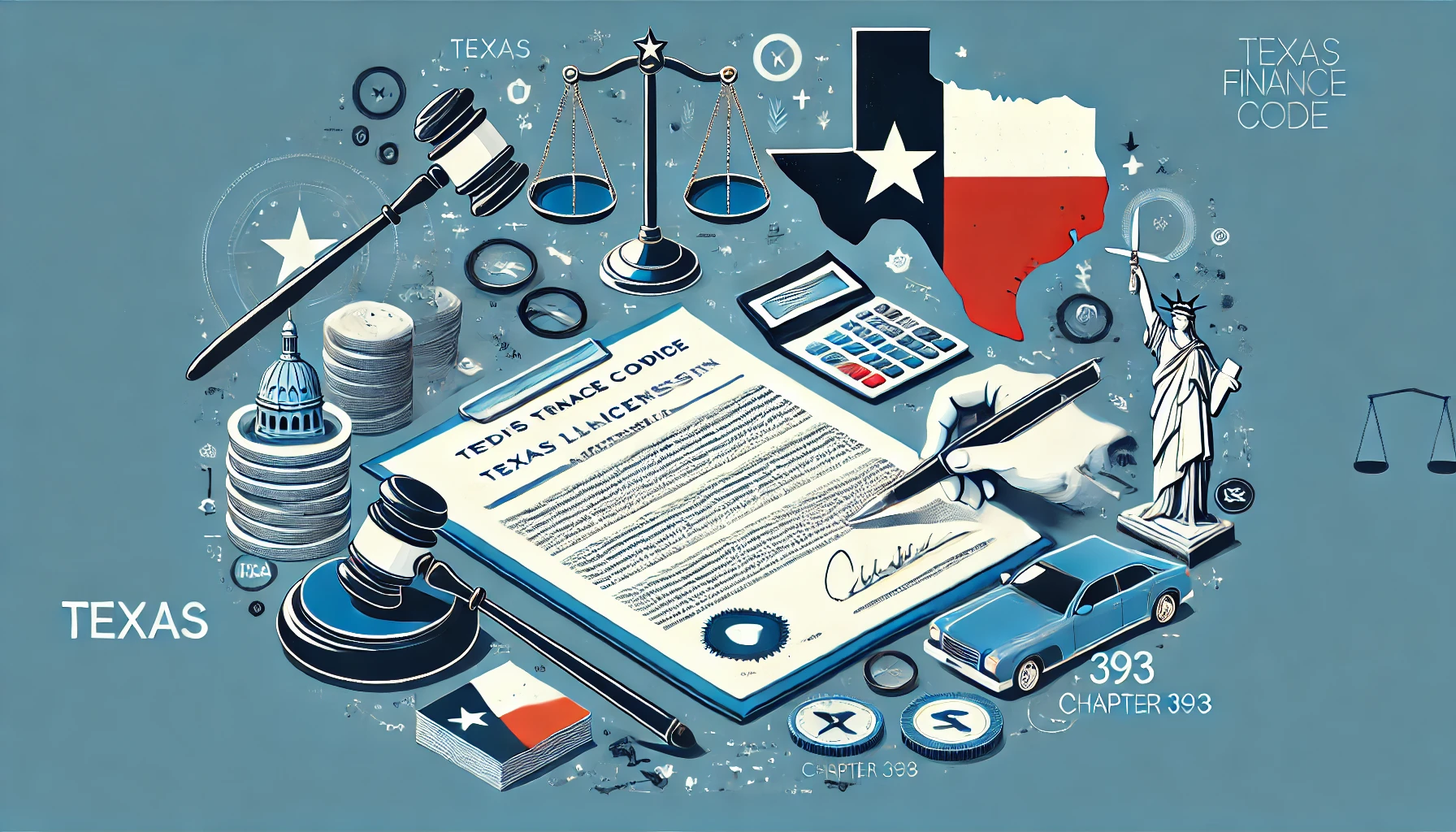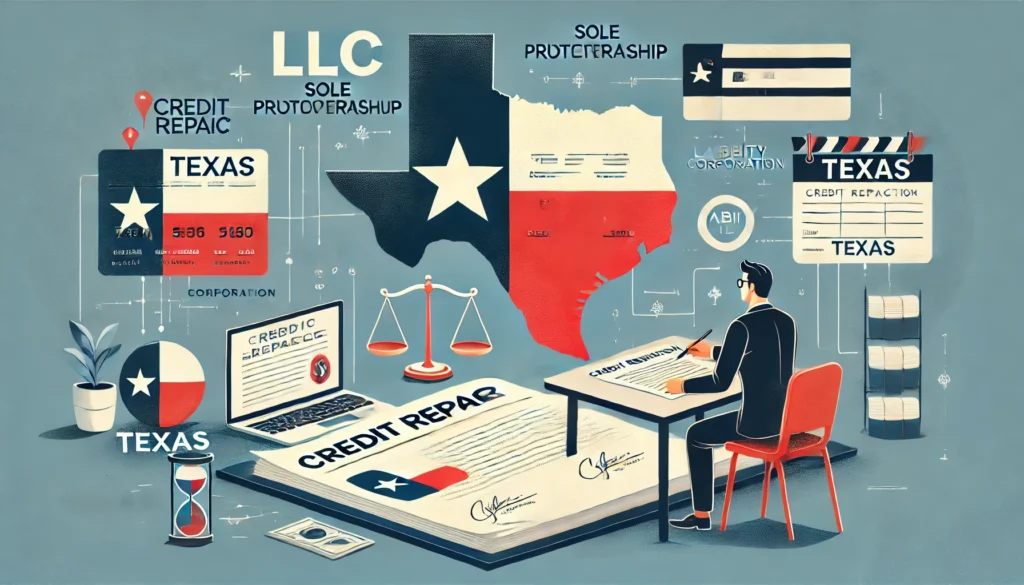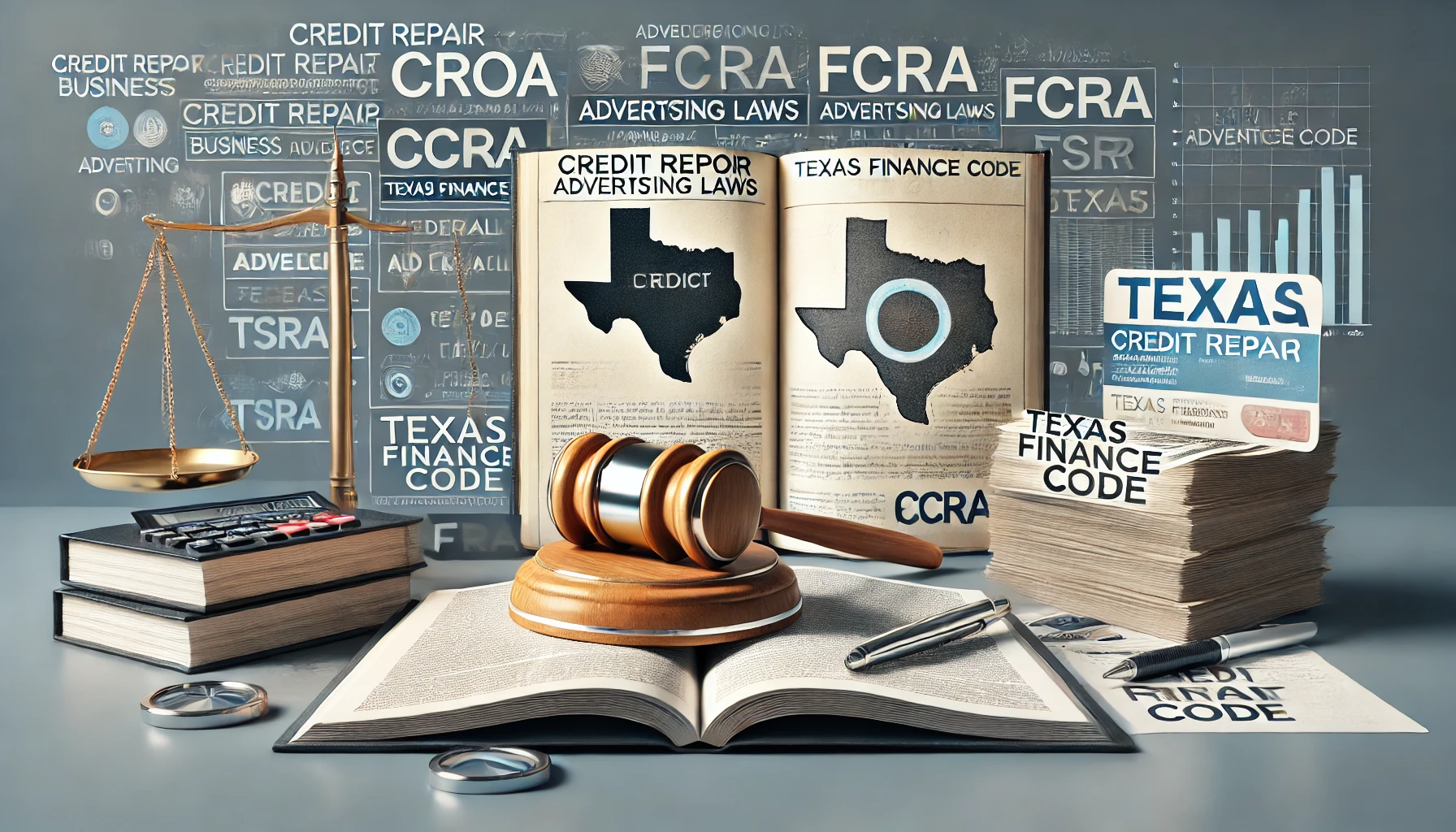The credit repair industry plays a crucial role in helping individuals and families improve their financial health by addressing issues related to poor credit scores. Credit repair involves analyzing credit reports, disputing inaccuracies, and negotiating with creditors to remove negative items that unfairly lower a person’s credit score.
As financial literacy becomes increasingly important, more Texans are seeking professional assistance to enhance their credit profiles, leading to a growing demand for credit repair services in the state.

For those interested in pursuing a career in this thriving field, understanding how to become a credit repair specialist in Texas is the first step towards a rewarding profession. The state’s booming economy and large population create ample opportunities for credit repair specialists to offer their expertise.
Whether you’re looking to join an established credit repair company or start your own credit repair business, there’s a clear path to success in Texas’s expanding credit repair industry. With the right knowledge, skills, and adherence to regulations, you can help others achieve financial stability while building a prosperous career.
Understanding the Role of a Credit Repair Specialist
A credit repair specialist is a financial professional dedicated to assisting clients in improving their credit scores and overall financial health. Their primary responsibilities include reviewing clients’ credit reports, identifying inaccuracies or negative items, and working with credit repair companies and creditors to resolve these issues. By providing expert guidance on credit repair services, they help clients navigate the complexities of credit scoring and develop strategies to boost their credit ratings.
In addition to negotiating with creditors and credit reporting agencies, a credit repair specialist educates clients on best practices for maintaining a healthy credit score. This may involve advising on debt management, payment strategies, and understanding the factors that impact credit scores.
As a trusted advisor, a credit repair specialist plays a vital role in helping clients achieve financial freedom and access better opportunities for loans, mortgages, and other financial products.
Educational Requirements and Certifications
Is Formal Education Necessary?
When considering how to become a credit repair specialist in Texas, many are surprised to learn that there are no formal education requirements. While a background in finance or business can be advantageous, it’s not mandatory. The most critical factors for success in this field are a strong understanding of credit repair laws, the ability to analyze credit reports, and effective communication skills.
However, continuing education is essential to stay updated on the latest regulations and best practices in the credit repair industry. Texas has specific laws and guidelines that credit repair specialists must follow, making ongoing learning vital for compliance and professional growth.

Recommended Certifications and Training Programs
Although formal education isn’t required, obtaining certifications can significantly enhance your credibility and effectiveness as a credit repair specialist. Programs like the Certified Credit Repair Agent (CCRA) offer in-depth training on credit repair processes, legal requirements, and ethical business practices.
These certifications provide the knowledge and skills needed to operate a successful credit repair business and instill confidence in potential clients. Whether you’re joining an established credit repair company or starting your own credit repair business, certifications help ensure that you are well-prepared to navigate the complexities of the credit repair industry and provide high-quality services to your clients.
Licensing and Legal Requirements in Texas
Understanding the Texas Finance Code
When establishing a credit repair business in Texas, it’s crucial to understand the legal framework outlined in the Texas Finance Code. Specifically, Chapter 393 of the Texas Finance Code regulates credit services organizations, including credit repair businesses, to ensure they operate within the bounds of the law.
This chapter provides detailed guidelines on how credit repair businesses must conduct their operations, focusing on consumer protection and transparency. For example, the Texas Finance Code mandates that credit repair companies must provide clients with a written contract before offering any services, clearly outlining the terms and conditions.
Additionally, it aligns with the Credit Repair Organizations Act (CROA), a federal law that protects consumers from deceptive practices. Compliance with these laws is not only mandatory but also builds trust with potential clients, positioning your business as a reputable credit services organization.
Necessary Licenses and Permits
To legally operate a credit repair business in Texas, you must obtain several business licenses and permits. First, your business must be registered with the Texas Secretary of State, and you need to acquire an Employer Identification Number (EIN) from the IRS. Depending on your business structure—whether a sole proprietorship, LLC, or corporation—additional documentation may be required. Additionally, local regulations may require a general business license from your city or county.
Beyond these basic requirements, credit repair businesses in Texas must also comply with specific licensing requirements set forth by the Texas Finance Code. This includes securing a surety bond, which serves as a financial guarantee that your business will adhere to state regulations. Meeting these licensing requirements not only legitimizes your business but also provides legal protection, ensuring you can operate without encountering legal trouble.

Setting Up Your Credit Repair Business in Texas
Choosing a Business Structure
One of the first steps in setting up your credit repair business in Texas is choosing the right business structure. The structure you select will impact your business management, taxation, and personal liability. Common options include sole proprietorship, limited liability company (LLC), and corporation.

A sole proprietorship is the simplest structure, ideal for those who want to run their own business without forming a separate legal entity. However, this option offers no personal liability protection, meaning your assets could be at risk if the business faces legal issues.
An LLC is a popular choice for credit repair businesses because it combines the benefits of a corporation with the simplicity of a sole proprietorship. It provides personal liability protection, ensuring that your personal assets are safeguarded if the business encounters legal trouble. Additionally, an LLC offers flexibility in management and tax benefits.
For those looking to expand and scale their credit repair business, forming a corporation may be the best option. Corporations offer strong liability protection and have the advantage of raising capital through the sale of stock. However, they require more extensive business management and are subject to double taxation, where the company and shareholders are taxed on profits.
Insurance and Bonding Requirements
To protect your credit repair business in Texas, securing liability insurance and a surety bond is essential. Liability insurance shields your business from potential legal claims and financial losses that may arise from errors, omissions, or lawsuits. It’s a critical safeguard that ensures your business can withstand unforeseen challenges without significant financial impact.
A surety bond, on the other hand, is a requirement under the Texas Finance Code for credit repair businesses. It acts as a financial guarantee that your business will comply with state regulations and fulfill its obligations to clients. This bond is issued by a surety company and serves as a form of consumer protection, reassuring clients that your business is credible and legally compliant. Failure to obtain a surety bond can result in legal penalties and jeopardize your business operations, making it a non-negotiable aspect of starting your credit repair business in Texas.
Developing a Credit Repair Contract
Essential Elements of a Legal Contract
When operating a credit repair business in Texas, developing a comprehensive and legally compliant credit repair contract is crucial. A well-drafted contract not only sets clear expectations but also protects both you and your clients.
According to Texas law, the contract must include key elements such as the specific services to be provided, the fees for those services, and the terms of payment. It should also clearly state the client’s right to cancel the contract within a certain period, typically three business days, without penalty.
Moreover, your contract must include a section on valuable consideration, outlining what the client will receive in exchange for their payment. Ensuring that your contract adheres to all applicable laws is essential to avoid legal disputes and maintain your business’s credibility. Including these essential elements in your written contract will help you comply with state regulations and establish trust with your clients.
Marketing Your Credit Repair Business
Effective Marketing Strategies
To attract potential clients and grow your credit repair business in Texas, implementing a robust marketing strategy is essential. Social media marketing is one of the most effective ways to reach a wide audience, allowing you to connect with individuals seeking credit repair services. Platforms like Facebook, Instagram, and LinkedIn offer targeted advertising options that enable you to focus your marketing efforts on specific demographics, increasing the likelihood of reaching clients who need your services.
Referral marketing is another powerful tool. Encourage satisfied clients to refer others to your business by offering incentives such as discounts or referral bonuses. Building relationships with real estate agents, mortgage brokers, and other financial professionals can also generate a steady stream of referrals, as these professionals often encounter clients who need credit repair assistance.
Networking is equally important. Attend local business events, financial workshops, and community gatherings to meet potential clients and establish your presence in the community. By actively engaging in networking, you can build trust and credibility, making it easier to attract and retain clients.
Compliance with Advertising Laws
While marketing your credit repair business, it’s crucial to ensure that all advertising practices comply with state and federal laws. The Credit Repair Organizations Act (CROA) and the Fair Credit Reporting Act (FCRA) are federal laws that regulate how credit repair businesses can advertise their services.

Avoid making deceptive claims or guarantees, as this can lead to legal trouble under these federal laws. Additionally, if you use telemarketing as part of your strategy, you must comply with the Telemarketing Sales Rule (TSR), which sets forth guidelines to prevent fraudulent and abusive telemarketing practices.
In Texas, adhere to state-specific advertising regulations outlined in the Texas Finance Code. These laws are enforced by the Consumer Credit Commissioner, and violating them can result in fines or legal action. By ensuring your marketing efforts are both effective and compliant, you can build a successful credit repair business without risking legal issues.
